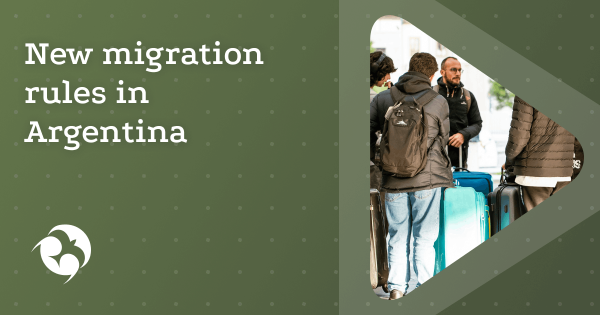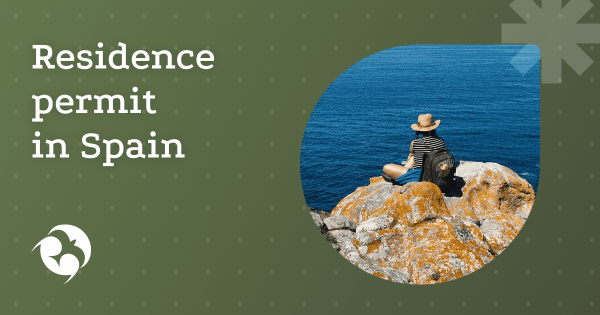On May 29, Decree No. 366/2025 came into force in Argentina, which radically changes approaches to migration. The days when it was easy to obtain an Argentine passport through the birth of a child are over. Now everything is much more complicated. The figures speak for themselves: over the past 20 years, more than 1.7 million illegal immigrants have arrived in Argentina. Javier Miley’s government has decided to restore order.
What has changed?
Now citizenship by naturalization can be granted to:
- Foreigners over the age of 18 who have continuously and legally resided in Argentina for 2 years and have applied to the Migration Department. Continuous residence refers to the absence of any trips outside the country during this period.
- Foreigners who have made significant investments in Argentina (regardless of the length of residence).
3 main categories of residents are being introduced:
- Constant.
- Temporary.
- Transit.
The precaria residence (temporary) can be issued for 90 days with the possibility of extension. However, now the document does not provide grounds for citizenship or permanent status.
The grounds for the entry ban are determined. Documented violations:
- Providing false documents.
- Suspicion of a false purpose of entry.
- Detection of illegal border crossing.
The conditions of deportation are being established:
- Violations during the registration of documents.
- Falsification of data.
- Concealment of criminal record.
- Crimes against the Constitution, life.
- Violation of the conditions of stay.
- Prolonged absence from the country.
- Violation of the conditions for the provision of state aid.
The changes in the sphere of deportation are radical:
- Deportation of all convicted persons, regardless of the severity of the crime (previously, they were deported only for a term exceeding 5 years);
- Speeding up the procedure without lengthy appeals;
- Entry ban for anyone with a criminal record.
The procedure for access to social services has been defined:
Education. Even illegal migrants retain the right to primary and secondary education.
Healthcare. Emergency assistance is available to everyone, regardless of their status. Full access to government medicine is reserved only for permanent residents. In all other cases – by insurance or advance payment.
New obligations of foreigners have been introduced. Now migrants are obliged to:
- provide the actual address;
- register the legal address and email address;
- update the address within 3 business days after the move.
Changes for families with children
Previously, the parents of a child born in Argentina automatically received the right to permanent residence. The scheme was simple: he arrived, gave birth to a child, applied for permanent residence, and then for citizenship. Now the algorithm is different:
- At first, only a temporary residence permit;
- Then 2 years of continuous residence in the country;
- Proof of sufficient income;
- No criminal record;
- And only after that – the right to permanent residence and citizenship.
Precarious accommodation will no longer be counted during this period. In Argentina, you need to spend 2 years without leaving, strictly with a residence permit. The new rules apply not only to obtaining status. Medicine for foreigners has become paid. In 2024, the cost of treating foreigners amounted to more than 72 billion pesos, and 10.58% of all hospital discharges were for non-residents.

- We will answer all your questions
- We will help you choose the best option
- We will guide you through every step or do everything for you
What’s next?
The decree has already entered into force. Those who submitted their documents before May 29 will be considered according to the old rules. What should the others do?
- Wait for a pause. To wait for the creation of regulations, responsible authorities, and debugging procedures.
- At the moment, the legislative amendments do not have a functioning infrastructure.
- The system is not fully operational until the internal regulations, instructions, and forms are developed.
It is important to understand that migration legislation is changing rapidly, and the consequences of mistakes can be serious. Our team of migration lawyers monitors all changes in Argentine legislation and will help you understand the new requirements. Leave a request for a consultation. We will analyze your situation and suggest the optimal strategy for action within the framework of the updated legislation.













